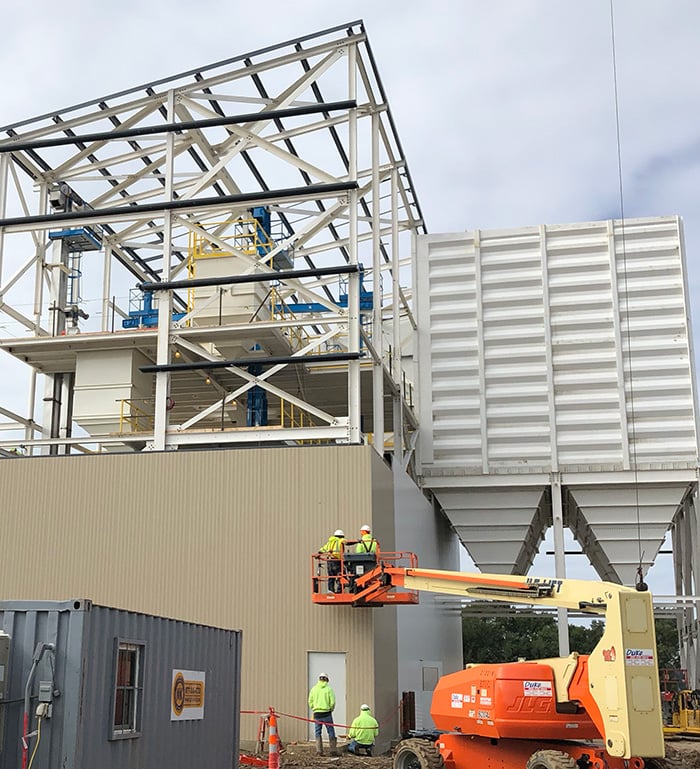
How do you find the perfect construction company for your agricultural construction project?
You need a company that has the experience, knowledge, resources, and expertise to deliver the best results. To find that company, you can issue a request for proposals (RFP) for your project. RFPs can be complex and lengthy documents covering essential information to help you choose a qualifying contractor.
But creating an RFP doesn't have to be a difficult process. Our guide to agricultural construction RPFs explains the best practices. Keep reading to find out what they are.
Before You Start
To make the RFP process run smoothly, it's worth keeping these things in mind before you get started.
State Statutes
Do your local laws affect the RFP process? Prior research into how your local laws will affect your agricultural construction project is vital. These may affect the aspects you include in your RFP. You can find these online or speak with a local attorney.
Delivery Methods
The ideal delivery method will depend on your project type, complexity, budget, and schedule among other things. Integrated project delivery (IPD) is a multi-contract approach involving a variety of companies.
Design-Bid-Build (DBB) involves hiring an architect to prepare the construction documents. These are then released publicly for contractors to bid on for the issuer to find the best price offered to complete construction.
The design and build method consists of designers and contractors working together on the project, usually from the same firm. This keeps every aspect of the project within one company that the RFP issuer has chosen. This is often the most hassle-free option. The teams will already have years of experience working together.
The construction manager at risk (CMAR) method requires a commitment from the construction manager to deliver the completed project within a guaranteed maximum price (GMP).
Issue an RFQ
Some project owners will create and publish a request for qualifications (RFQ) before the RFP. Bidding contractors will submit their qualifications and experience in construction engineering to the owner to exhibit that they are indeed qualified for the potential RFP.
What Makes a Good RFP?
Creating RFPs requires a detailed "scope of work" that outlines the goals and requirements of the project. The key to finding the most relevant and qualified agricultural construction company for your project is to create a clear, detailed, and concise RFP.
However, the level of detail you include in your RFP will depend on whether you already have a project design. You may want your RFP to be slightly less detailed to allow for creative suggestions from contractors if you don't have a design in mind.
Key Components of an RFP in the Construction Industry
To give agricultural construction companies the guidance for offering suitable bids, include these key components.
Project Timelines
Providing an overview of the timeline of a project offers contractors insight into your expectations of how long the project should take. If you have specific deadlines or milestones that need to be achieved, it allows the construction company to incorporate this into their proposed timeline.
Project Delivery Guidelines and Expectations
Which project delivery method will you choose? Whether IPD, DBB, D&B, or CMAR, the bidding companies need to know if you have any preferred guidelines or specific expectations.
Budgetary Expectations
Your finance department would have calculated a budget for your project. Stating how much you're expecting the project to cost will offer a target for contractors to work towards or try to beat.
Specific Project Requests
To ensure you attract the most qualified construction company with the best resources and facilities to complete every aspect of your project, you need to include any specific requirements. The more specific you are with your requirements, the more relevant bids you'll receive.
Submission Deadlines
Ideally, you'll have many proposals to consider, so set a realistic deadline for enough companies to bid, while keeping to your schedule. Be clear and strict with proposal submission deadlines. Time management is an essential skill for a construction company after all.
Agricultural Construction RFP Do's
To create the most concise yet detailed RFP, here are a few tips to make it as effective and efficient as possible.
Find a Balance
You want specific information from a potential contractor, but you want to give them room to sell themselves. An RFP shouldn't be so detailed that it constricts a contractor's creativity, but not vague enough that would leave the contractor feeling confused about your requirements.
Ask for Unique Qualities
You have specific needs for your project, so you should find contractors with the best qualities. Provide an opportunity for the company to advertise theirs such as specialized personnel, variety of construction services, equipment, process engineering experience, and accreditations.
Provide a Rating Scale
What is more important to you? A company's level of experience, the proposed estimate, or timeline? Create a rating scale for each document section with the weight of importance. For example, you could assign 30% of the evaluation to a company's previous completed project experience. This will help the company provide your desired amount of focus on each section.
Provide a Template
This is the simplest way to homogenize proposals to make the evaluation as quick and easy as possible. Providing a template is common practice in industrial construction RFPs to make the process more efficient. This will challenge the company to give more concise and captivating answers.
Agricultural Construction RFP Don'ts
Bad RFPs are surprisingly common and waste time and money. An unclear and lengthy RFP can cause confusion and could hinder the search for the perfect construction company for your project. Try to avoid the following mistakes to ensure you create an effective RFP.
Don't Write Statements, Use Questions
RFP issuers write their requirements or goals as statements and expect relevant responses. For example "We require the project to be completed in eight months."
The contractor could answer "We will complete the project within the required timeframe." The question should be "How will you ensure the project is complete within eight months?" This gives the contractor an opportunity to explain.
Don't Be Too Vague
You may think you don't have the time to curate a detailed and fine-tuned RFP. But keeping things too vague will result in a huge number of irrelevant proposals. This wastes everyone's time and costs more in the long run.
Don't Complicate Things
Keep in mind that the RFP you create is the document you and your team will have to work with during evaluations. Try not to include extensive annexes and files. Keep things simple.
Finding an Industry Leader
Although the RFP process isn't an easy one, it's the sure-fire way to find the best agricultural construction company that will offer the best results for your project.
As a leader in the agricultural conditioning and processing facilities industry, Bratney Companies focuses on building excellent working relationships and with our partners for the best results. Get in touch to find out how we can help achieve your goals.


/Alfalfa%20Seed%20Conditioning%20(Images)/cimbriadensityseparator_6BA7E8C6FA039.jpg)